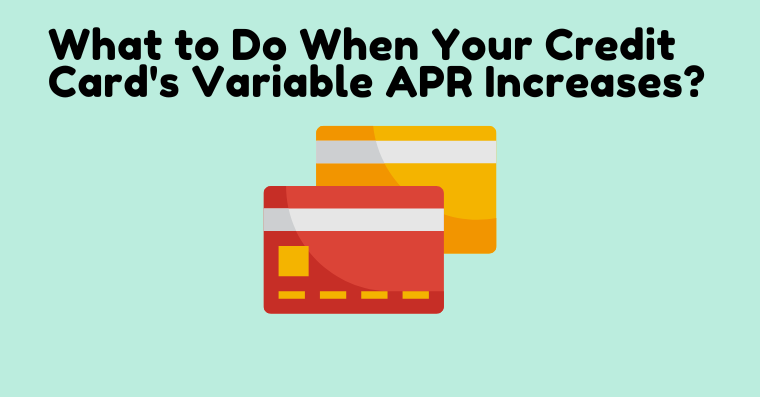Search This Blog
Our goal at Best Credit Guide is to empower people with the knowledge and tools they need to make informed financial decisions and achieve their financial goals.
Featured
- Get link
- X
- Other Apps
What to Do When Your Credit Card's Variable APR Increases?
Credit cards can be a useful tool for managing your finances, but they also come with a range of fees and interest rates that can change over time. One of the most significant factors to be aware of is the APR or Annual Percentage Rate, which determines the interest you'll pay on any balances you carry over from month to month. Credit card companies can raise your APR for a variety of reasons, such as a late payment or a change in market conditions. If you find that your credit card's variable APR has increased, it's essential to take action to avoid paying more in interest charges. In this article, we'll discuss some steps you can take to manage the situation and keep your finances on track.

Review your credit card agreement: Read your credit card agreement carefully to understand the terms and conditions that apply to your account, including the circumstances under which the issuer can change your APR.
Contact your credit card issuer: If you don't understand why your APR has increased or you think it's unfair, contact your credit card issuer to ask for an explanation. You can also try to negotiate a lower APR or ask for a temporary reduction.
Consider transferring your balance: If you have a high balance on your credit card and you can't afford the higher APR, consider transferring the balance to a card with a lower rate. Look for balance transfer offers that have a low or 0% introductory APR.
Pay off your balance: If you can't transfer your balance or you don't want to, focus on paying off your balance as quickly as possible. This will reduce the amount of interest you have to pay and help you avoid getting into debt.
Avoid using your card: If possible, avoid using your credit card until you can pay off your balance or transfer it to a card with a lower APR. This will prevent your balance from growing and make it easier to pay off.
Improve your credit score: If your credit score has improved since you first got your credit card, you may be able to qualify for a lower APR. Make sure you pay your bills on time, keep your balances low, and avoid applying for too much credit at once.
Consider closing your account: If you can't afford the higher APR and you can't transfer your balance, you may want to consider closing your account. This will prevent you from using the card and accumulating more debt. However, closing your account could have a negative impact on your credit score, so weigh your options carefully.
Bottom line:
In conclusion, a sudden increase in your credit card's variable APR can have a significant impact on your finances, but there are steps you can take to mitigate the effects. The first step is to understand why your APR has increased and how it will affect your payments. From there, you can explore options such as negotiating with your credit card company or transferring your balance to a card with a lower interest rate. It's essential to stay on top of your credit card payments and avoid carrying a balance whenever possible to minimize the impact of any interest rate increases. With careful planning and management, you can maintain control over your finances and avoid getting caught in a cycle of high-interest debt.
Popular Posts
The Role of Forex Credit Cards in International Business Transactions
- Get link
- X
- Other Apps

Comments
Post a Comment